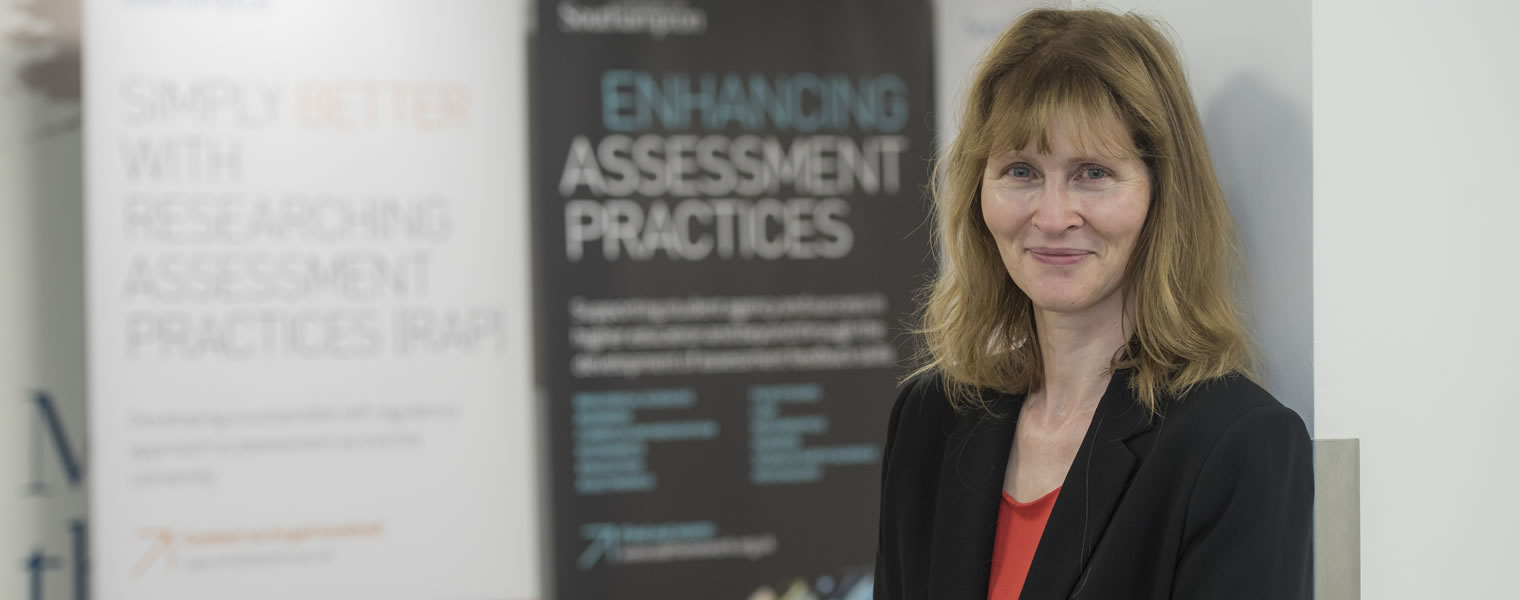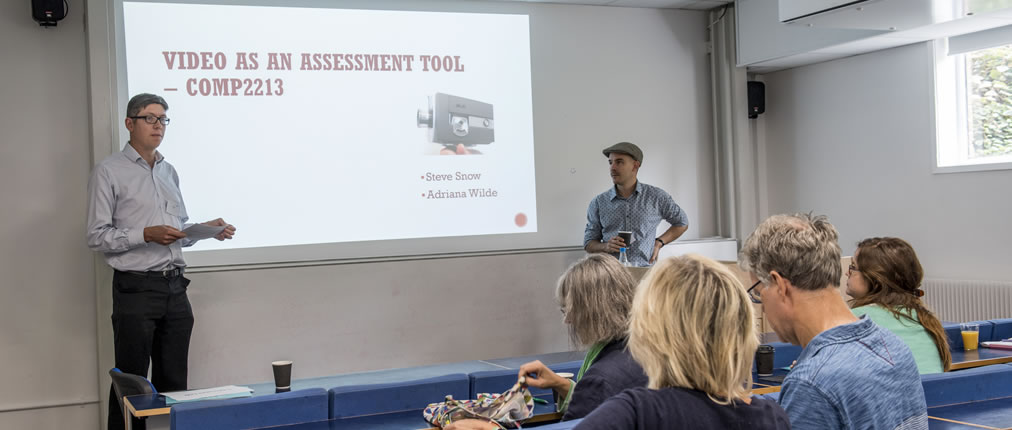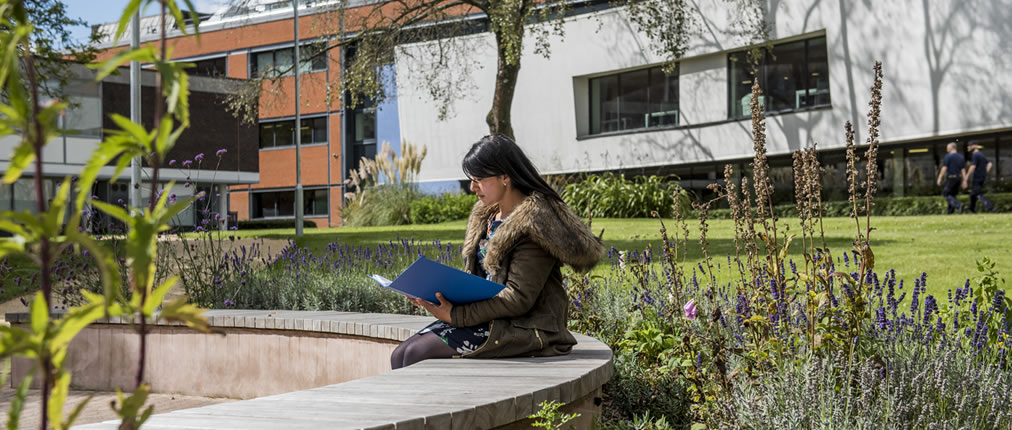Hartley News Online Your alumni and supporter magazine
On Thursday 14 September the University held its first annual Researching Assessment Practices (RAP) conference entitled ‘What Works in Assessment and Feedback: Simply Better’. The event was held to share good practice, review progress, and discuss next steps aligned to the overarching University and Education strategies.
Assessment and feedback plays a critical role in improving student experience, so Southampton Connects Staff asked Carol Evans, Professor of Higher Education and group leader of RAP, about the progress we are making in this area and how RAP is helping.
The University’s RAP strategy promotes a research-informed approach to assessment practices which supports staff and students to work in partnership to promote meaningful assessment practices, as part of an integrated and measured approach.
Professor Evans says there are clear signs that RAP is making a big difference in this area:
While the University’s Teaching Excellence Framework 2017 result was very disappointing, especially given the commitment of colleagues to enhancing learning and teaching, the RAP community is able to evidence significant progress with assessment and feedback.
“We hope the good progress made this year, demonstrating our commitment to student and staff success, will support our future performances in the next iteration of institution-level TEF, and also at the discipline level,” she says.
The 2017 Teaching Excellence Framework (TEF) external panel praised the University’s ongoing work to improve student satisfaction with assessment and feedback. In the National Student Survey 2017 (NSS), Southampton’s Assessment and Feedback score increased by 2.5 points to 71 per cent; an increase notably ahead of both the Higher Education Institution (HEI) sector and the South East Regional Group of colleges and universities. As a result, the University has improved its rank position on Assessment and Feedback by 40 places.
Considerable work has taken place across faculties to improve key areas of assessment and feedback focusing on clarifying what constitutes as ‘good work’. Areas include student entitlement in relation to assessment and feedback design and support, clarifying the ‘What’, ‘When’, and ‘How’ of feedback, and student and lecturer responsibilities. Feedback on what was good about the work, what lets students down, if anything, and how to improve, is also included.
There is also evidence that training events run by RAP, to support activities within disciplines, have been valuable. Adriana Wilde, RAP Think Tank Lead in Physical Sciences and Engineering says:
RAP has enabled conversations across departments, and fostered collaborations amongst colleagues throughout the University.
Collaboration with Education Strategy Programme boards is ongoing and vital to ensure a holistic and integrated approach.
Professor Evans says that a lot of work has been done to create new tools for teaching staff to help them provide a consistent approach to assessment and feedback.
“We have contributed to the development of the new Framework for Taught Programmes in the Quality Handbook and streamlined quality assurance guidance on assessment and feedback.”
I have created the Evans Assessment Tool (EAT) Framework to help guide educators when providing assessment and feedback. This brings together the Quality Assurance Agency (QAA) guidance, the UK Professional Standards Framework (UKPFS) and HEA guidance to support understanding of assessment requirements. This Framework is now being used by colleagues in over 140 HEIs.
Our two Higher Education Funding Council for England (HEFCE)-funded projects, which support student self-regulation in assessment and feedback using the EAT Assessment and Feedback Framework, are underway. These projects involve colleagues in six faculties working on focused interventions.
The larger scale HEFCE project, called ‘Maximising Success’, is in collaboration with Surrey and Kingston universities. It focuses on the scaling up of the EAT Framework approach across the University, and specifically in four faculties: Business, Law and Art, Health Sciences, Humanities and Natural and Environmental Sciences, with a number of bespoke projects.
A number of case studies, run by RAP Think Tank Faculty Leads, are currently underway, focusing on improving students’ understanding of the assessment requirements, and how to use and apply feedback.
Dr Veronica Spencer, RAP Lead in Film Studies, ran informal discussion groups with first year students. Using the EAT framework, the project was structured in three parts: to investigate if the students understood what constituted a good essay within Film Studies, not having studied Film before; if they understood the standards and marking criteria on which their film-specific feedback is based; and whether they understood the tutors’ comments and how to translate feedback into actions.
In Electronics, where the project was run by Professor Goran Mashanovich, work focused on clarifying what constitutes as ‘good’ in learning, assessment and feedback. The work also looked at what students’ entitlements are, improving feedback receieved by students in and out of class, and assessment and feedback skills.
In Southampton Law School, Mark Telford looked at improving the effectiveness of our assessment feedback, and the students’ perceptions of it. This study looked at understanding first-year law students’ perceptions of feedback; evaluating the extent to which students understand the standard of work they should be producing; as well as developing interventions that will help to enhance students assessment literacy, with the overall aim of helping them become more effective assessors of their own work and progress.
Dr Sharon Pettit is a RAP representative in the Psychology Academic Unit. She explains in this short video why she thinks RAP is making a difference and provides an example from her academic unit.
Samuel Dedman, Vice-President Education at the Students’ Union, says:
“RAP have helped us to start to make sense of what is a really complicated topic. Trying to work out what ‘good’ looks like is really tricky, and therefore the work of Professor Evans and everyone involved in RAP has proved crucial in helping us work out where we go next.
The single biggest change which I have witnessed is the development of a dialogue between the University and its students on the topic of assessment and feedback.
This part of the University experience is so often shrouded in mystery that the dialogue has been really eye-opening, and hopefully should lead to some long-term changes in the near future.
Professor Evans is looking forward to the next year, and aims to make substantial progress into building staff and student partnerships, and working closely with the Students’ Union, looking into peer engagement opportunities which promote the role of students in contributing to assessment and feedback practices as a key part of programme development.
She says:
Feedback is a precious and limited resource; we need to use the resources we have to best effect. Our design of assessment is crucial if students are to be enabled to self-manage their learning in the pursuit of meaningful activities and outcomes.”
“In promoting holistic practices, specific support will be provided for Programme/Module Leads to support enhancements to assessment as part of the revalidation process. Through the HEFCE funding, bespoke support will be available and RAP representatives have been asked to indicate what specific assessment support is wanted.”


